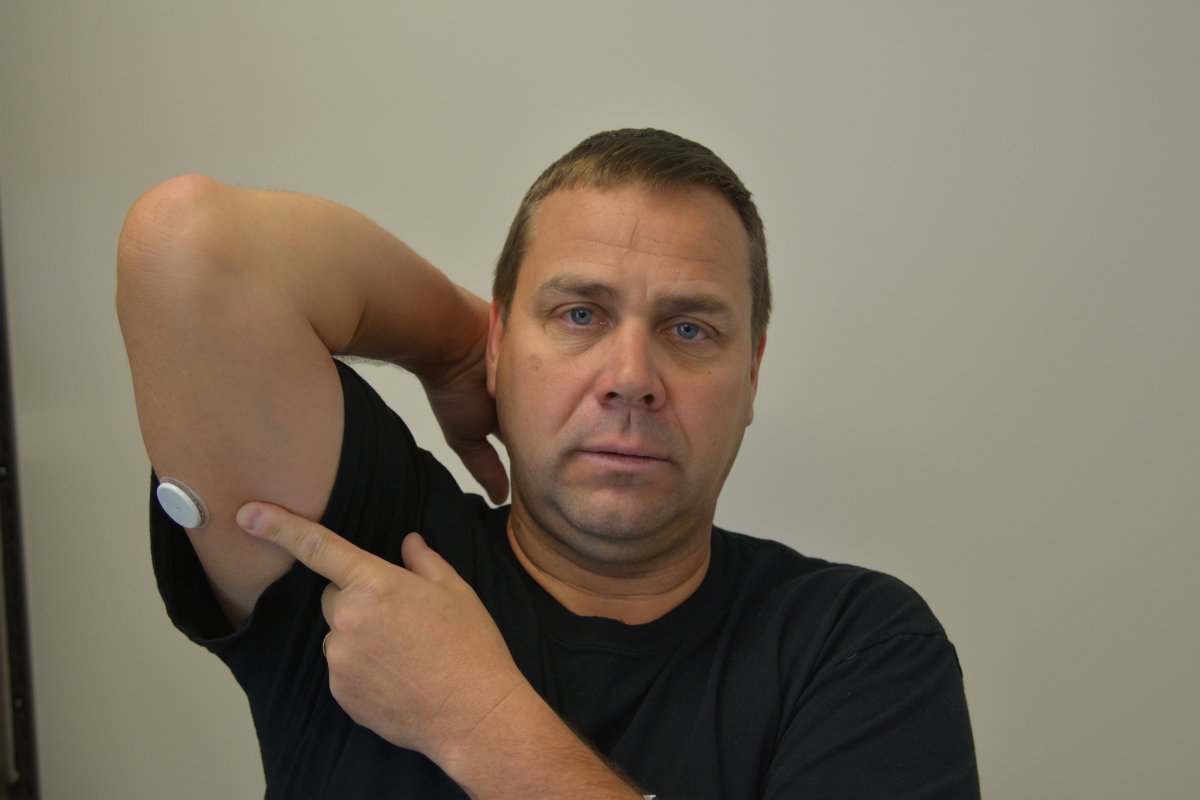Londoner Jason Howard and the Diabetes Education Centre at St. Joseph’s Health Care London are highlighting the cost of the condition to mark World Diabetes Day.

“For those patients that work for companies that have benefits, yes, there is some help there. For the groups that fit into the lower socio-economic bracket, they certainly have access to have some programs,” Keira Evans, registered nurse and certified diabetes educator with the centre, explained.
“But it’s that middle group that have jobs but have no benefits, or the benefits don’t cover everything.”
Londoner Jason Howard, 47, falls into that middle group and estimates that he spends $4,000 a year out of pocket on diabetes-related essentials. Howard was diagnosed with Type I diabetes about two years ago after suffering from pancreatitis.
Currently, he spends about $100 a fortnight to replace the sensor in his flash glucose monitoring system, which monitors glucose levels painlessly. Previously, he would have to prick his finger to check blood sugar levels.
“You have to use a new test strip every single time. They’re about a buck apiece. If you test yourself seven times a day, you’re looking at over $200 a month in just test strips,” he told Global News Radio 980 CFPL. “When I was first diagnosed, I was making the mistake of testing my blood with meals and not in between and I thought that was a good way of keeping my costs down.
“I would underestimate my carbs, purposely, and take less insulin just so I could stretch my insulin supply out. Just talking with other people, that’s not uncommon.”
Howard also notes that the cost of diabetes isn’t just monetary.
“To be brutally honest, being diabetic takes over your entire life. It’s a disease or a disorder, whatever you want to call it, that there’s no cure. Once you’re insulin-dependent diabetic, there’s no going back from that. It takes a toll on your family, psychologically it leads to depression and anxiety,” he said.
“For me, one of the things that happens when my blood sugar’s high I get grouchy, I get agitated very, very easily. I don’t like being like that, taking it out on your family.
“It’s not just me and my diabetes, it takes a toll on your entire family.”
This fall, the centre created a new position aimed at helping patients navigate life with diabetes.
“We have hired a person into a new role called the social services worker to help patients navigate the systems that are available in Ontario, to help them afford the test strips, the insulin, the medications, all of that,” said Evans.
The centre serves as a hub for patients across the region, from as far as Owen Sound to nearly Windsor, and Howard says it eases his mind to know they are there for him when he’s in need.
“If we ever have any concerns about anything at home, we can call or email and we get an answer usually within minutes, if not within the hour,” he said.
“I know I’ve had an instance since I’ve been diagnosed where I was feeling pretty down and a social worker called me from the hospital here and we had a good chat and it’s nice to know that I’ve always got that outlet if I need someone to talk to.”
Howard hopes that pressure can be applied on the government to take action to address the expenses associated with diabetes.








Comments